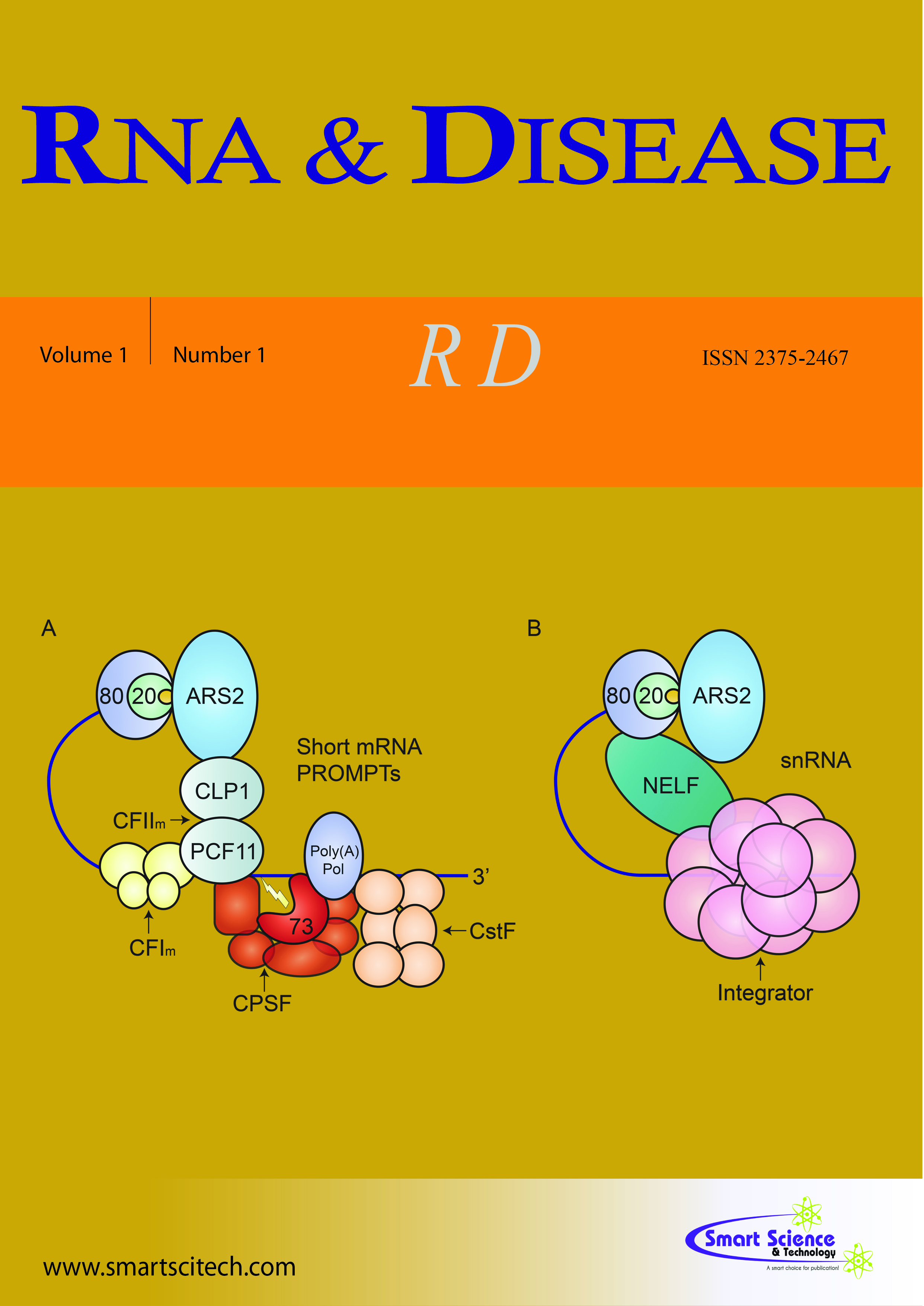microRNA-133? regulates neurotensin-associated colonic inflammation in colonic epithelial cells and experimental colitis
DOI: 10.14800/rd.472
Abstract
Inflammatory Bowel Disease (IBD), which includes ulcerative colitis (UC) and Crohn’s Disease (CD), are gastrointestinal disorders characterized by chronic and persistent inflammation. Neurotensin (NT), together with its high-affinity receptor NT receptor 1 (NTR1) are important mediators in intestinal inflammation and their expression is increased in the intestine of experimental colitis models and UC colonic biopsies. MicroRNAs (miRNAs) are short, single-stranded, non-coding RNA molecules which act as negative transcription regulators. We have previously shown that NT exposure upregulates miR-133? expression in human colonic epithelial NCM460 cells overexpressing NTR1 (NCM460-NTR1). Recently, we have further investigated the role of miR-133? in regulation of NT-associated proinflammatory signaling cascades and acute colitis in vivo. Our study shows that NT-induced miR-133? upregulation lead to NF-?B activation and increased production of proinflammatory cytokines. In addition, intracolonic administration of antisense-miR-133? prior to colitis induction improves histological scores and proinflammatory cytokine production. More importantly, dysregulation of miR-133? levels and aftiphilin (AFTPH), a novel miR-133? downstream target, are found only in patients with UC patients, but not with CD. Taken together, we have identified NTR1/miR-133?/aftiphilin as a novel regulatory axis involved in NT-associated colonic inflammation in vitro and in vivo. Our results also provide evidence that colonic levels of NTR1, miR-133a and aftiphilin may also serve as potential biomarkers in UC.












